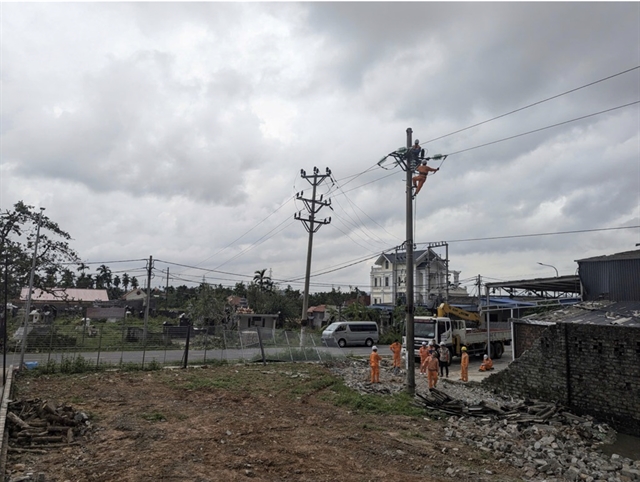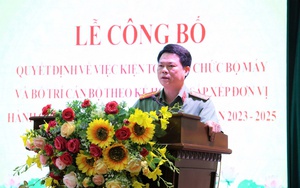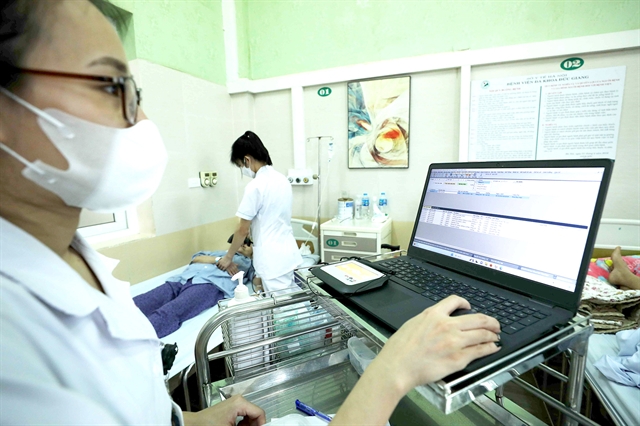▌Câu trả lời hay nhất
Due to the impact of strong winds and post-storm circulation,mít trà cú đá gà thomo mới nhất many power lines and distribution substations in northern provinces and cities experienced failures.
 |
| Workers are repairing electric lines that were affected by the typhoon. VNA/VNS Photo |
HÀ NỘI — Nearly 700,000 households have not yet been re-supplied electricity after the typhoon and subsequent floods.
The Northern Power Corporation has restored electricity supply to nearly 5.3 million customers out of a total of approximately six million cut off by the storms, as of yesterday morning.
Due to the impact of strong winds and post-storm circulation, many power lines and distribution substations in various northern provinces and cities experienced failures.
With the urgency and great efforts of units under the Northern Power Corporation (EVNNPC), 1,393 out of 1,671 medium-voltage power lines affected by the storm had been restored.
Regarding the restoration of high-voltage power grids, the 500kV power grid has restored 11 out of 13 faults.
The 220kV power grid has repaired 40 out of 44 faults and has restored all ten of its 220kV substations.
As for the 110kV power grid, 175 out of 191 faults have been restored and 94 out of 120 substations have been brought back into operation.
On Wednesday, the Central Power Corporation (EVNCPC) decided to send 245 skilled engineers and workers to Quảng Ninh Province to assist in restoring the power grid there.
Northern power units are continuing to mobilise personnel, vehicles, and equipment to address the aftermath of the disaster and restore electricity supply as quickly as possible, while still ensuring safety.
Due to the impact of post-storm circulation, a large volume of water continues to flow into hydropower reservoirs. Those in the north are currently opening spillways to regulate water flow as directed by the National Steering Committee for Natural Disaster Prevention and the provincial/municipal disaster prevention committees.
The hydropower reservoirs currently releasing water include Tuyên Quang opening three gates, Bản Chát - one gate, Huội Quảng - one gate, Thác Bà – three gates, Trung Sơn - six gates, and Bản Vẽ - six gates.
The Hòa Bình, Sơn La and Lai Châu hydropower plants have closed all spillways as directed by the Ministry of Agriculture and Rural Development.
Specifically, at Tuyên Quang hydropower plant, the highest water inflow into the reservoir was 6,966 cu. m per second at 9 am on September 9.
Currently, the water inflow has decreased to 2,031 cu.m per second, with a total outflow of 2,455 cu. m per second and the upstream water level has dropped to 117.3m.
The plant has only three out of eight spillway gates open (five gates were closed at 8am and 12pm on September 10 and at 8am, 3pm and 8pm on September 11).
At Thác Bà hydropower plant, the highest water inflow into the reservoir was 5,620cu.m per second at 9am on September 10.
Currently, the water inflow has decreased to 2,435 cu.m per second, with a total outflow of 3,140 cu.m per second and the upstream water level has dropped to 59.46m.
Thác Bà reservoir is currently operating under orders to open all three spillway gates as directed by the Ministry of Agriculture and Rural Development.
According to assessments from relevant authorities, the Thác Bà hydropower reservoir is currently safe. Authorities continue to closely monitor water flow trends and prepare flood discharge scenarios to respond to emergencies (if any), ensuring the safety of the facility as well asdownstream areas. VNS












